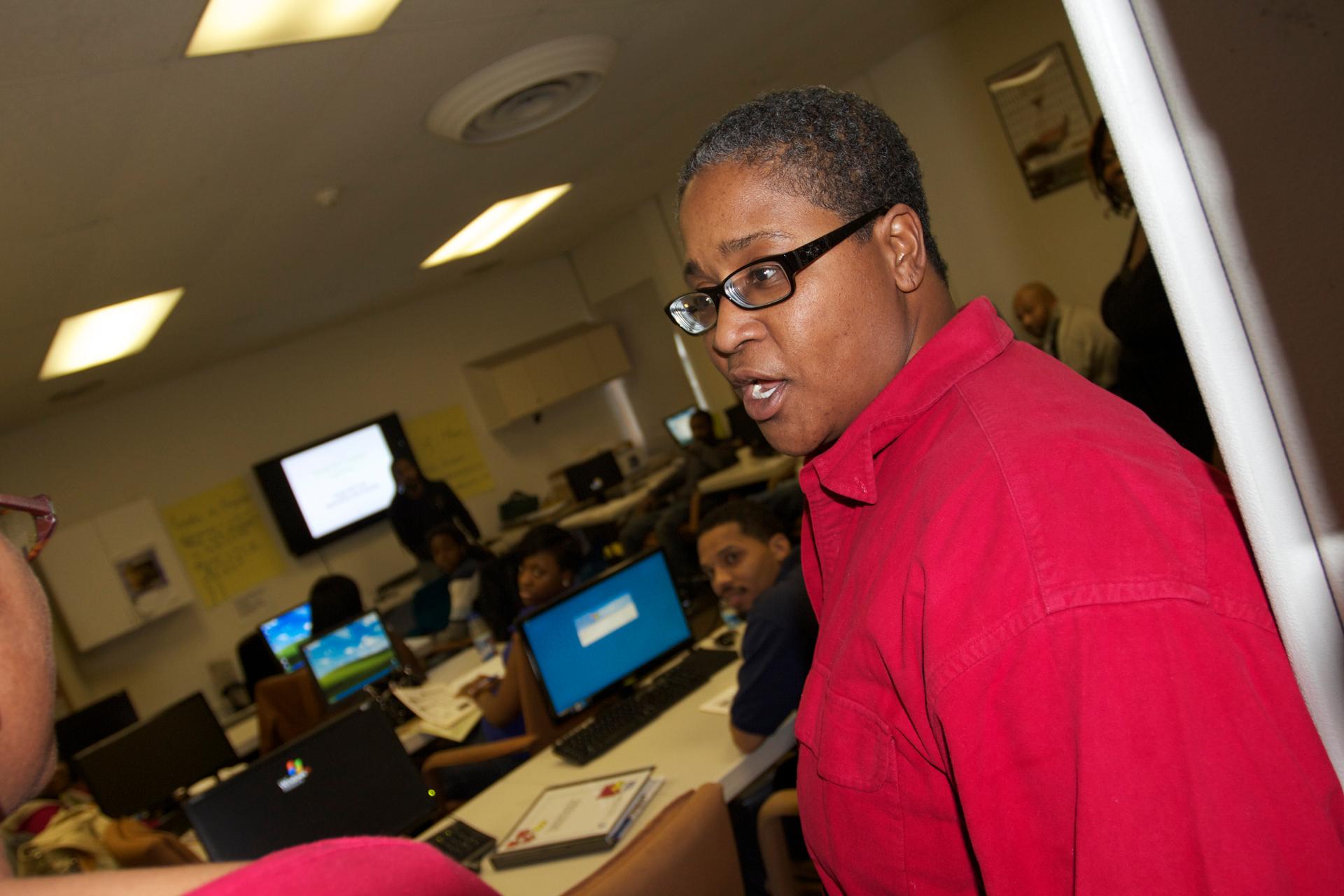‘It is their passing that keeps me going’
A. Toni Young, executive director of Community Education Group with the newest CHAMPS class.
WASHINGTON, D.C. — A. Toni Young watched five of her closest friends die of AIDS in the late 1980s and early 1990s. Each of them was profound in its own way, but it was her best friend Steven’s question in the last days of his life that would change hers.
“He asked me, ‘What if this was you?’” remembered Young.
In the late 1980s HIV was still thought of as a gay man’s disease and resources almost exclusively supported infected white men. Despite his frail state, Steven had assistance. But women and people of color had little such help and Steven thought Young should do something about it.
Even though Young joked that it was “messed up” for him to do that to her, his challenge motivated her.
In 1993, Young founded the National Women and HIV/AIDS Project, which later evolved into the Community Education Group. It focuses on HIV among African-Americans in Washington, D.C.
In 2012, the need for prevention and treatment here remains urgent: more than 3 percent of all residents have HIV or AIDS. In southeastern D.C., where nearly 96 percent of residents are African-American, the rates are much higher. Nearly 7 percent of black men in the area have the disease.
“HIV is one of many problems east of the Anacostia River,” Young said. The area has been rife with low education levels, low employment, and a myriad of other health disparities for years.
Few know Ward 7 better than Young. She grew up here and has seen her community bounce back from a time when the local government agency dedicated to HIV was full of corruption.
“I used to be ashamed to say I was from DC because I was ashamed of what we didn’t do,” said Young. “The city does a much better job of it now.”
In its early days, Community Education Group distributed condoms with a staff of five people. Today, with 25 outreach workers and eight mobile testing units providing tests and referrals, it has become one of the most respected community-based organizations in the city.
“Toni …really flipped things around when it came to linking patients to care,” said Dr. Shannon Hader, who served as director of the District’s HIV/AIDS, Hepatitis, STD, and TB Administration (HAHSTA) from 2007 until 2010.
Young helped put HAHSTA’s new testing initiative to work on the streets starting in 2006 and her expertise is now referenced in medical journals and new studies tackling the epidemic.
I visited Young and her staff at Community Education Group earlier this month as part of my reporting on HIV/AIDS for GlobalPost.
Community Education Group, housed in a former abortion clinic in Anacostia, is buzzing the day I arrive. There is a waiting room at the front of the building, where a couple of people are waiting to be tested. On the other side of the wall, workers are carrying boxes quickly past each other in a narrow hallway.
When Young can escape her office and the flurry of calls and meetings, she strolls down the busy hallway joking with her team as one might a fraternity brother. Their work involves fighting a deadly epidemic, but no one here is taking themselves too seriously.
She takes me to back part of the building where a class is in session. The 10 students — all of whom are recently released ex-offenders and individuals with histories of substance abuse — come from Wards 6, 7 and 8. Those who complete the course in good standing will be sent out in the field to deliver HIV education, handing out condoms and encouraging people to get tested. Nearly all of Community Education Group’s staff are graduates of the program, known as CHAMPS.
Combating HIV in one of the worst-hit areas of the nation remains Young’s focus, but she said one of the biggest rewards is watching the students transform into leaders.
“It’s crazy, given what we do, that this is what makes me tear up. But when we provide a structure without judgment, they become better citizens,” said Young, pausing briefly. “I see boys to grow into men.”
Every day, reporters and producers at The World are hard at work bringing you human-centered news from across the globe. But we can’t do it without you. We need your support to ensure we can continue this work for another year.
Make a gift today, and you’ll help us unlock a matching gift of $67,000!
